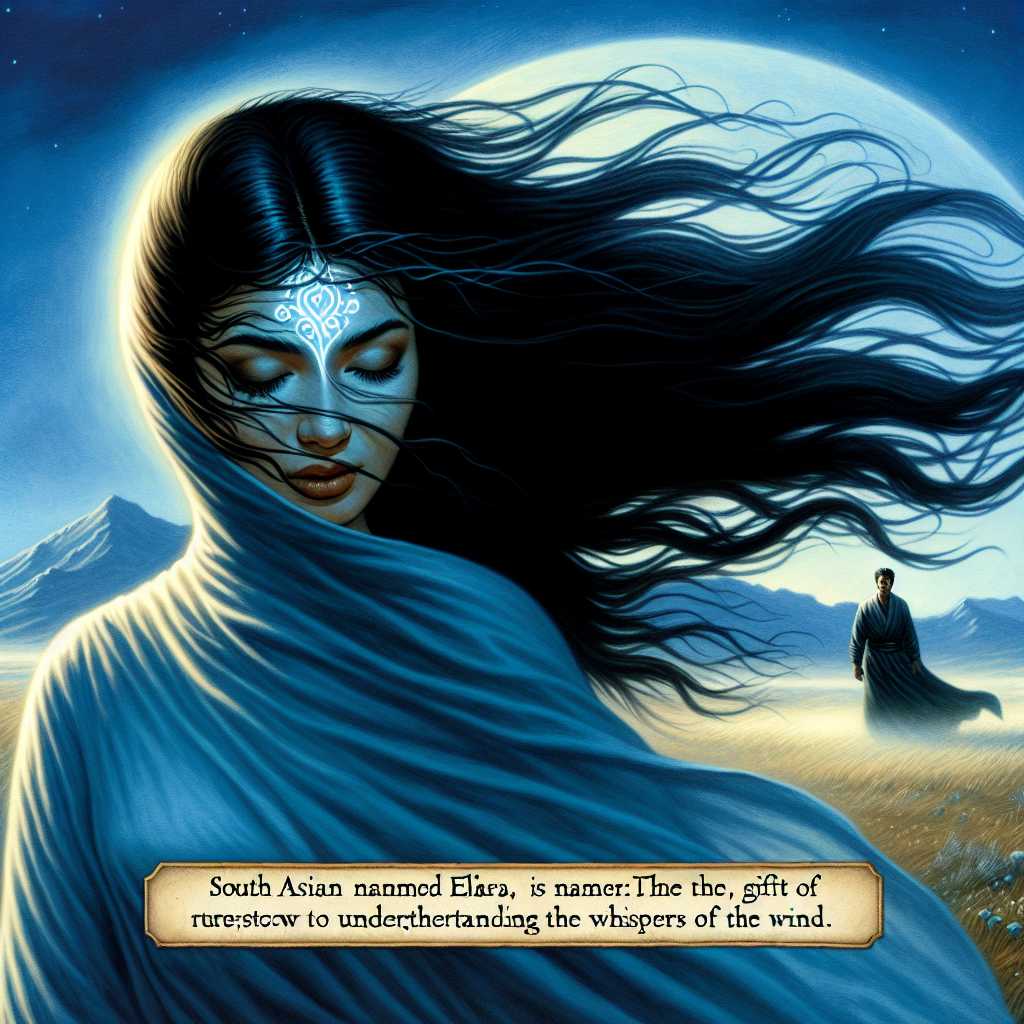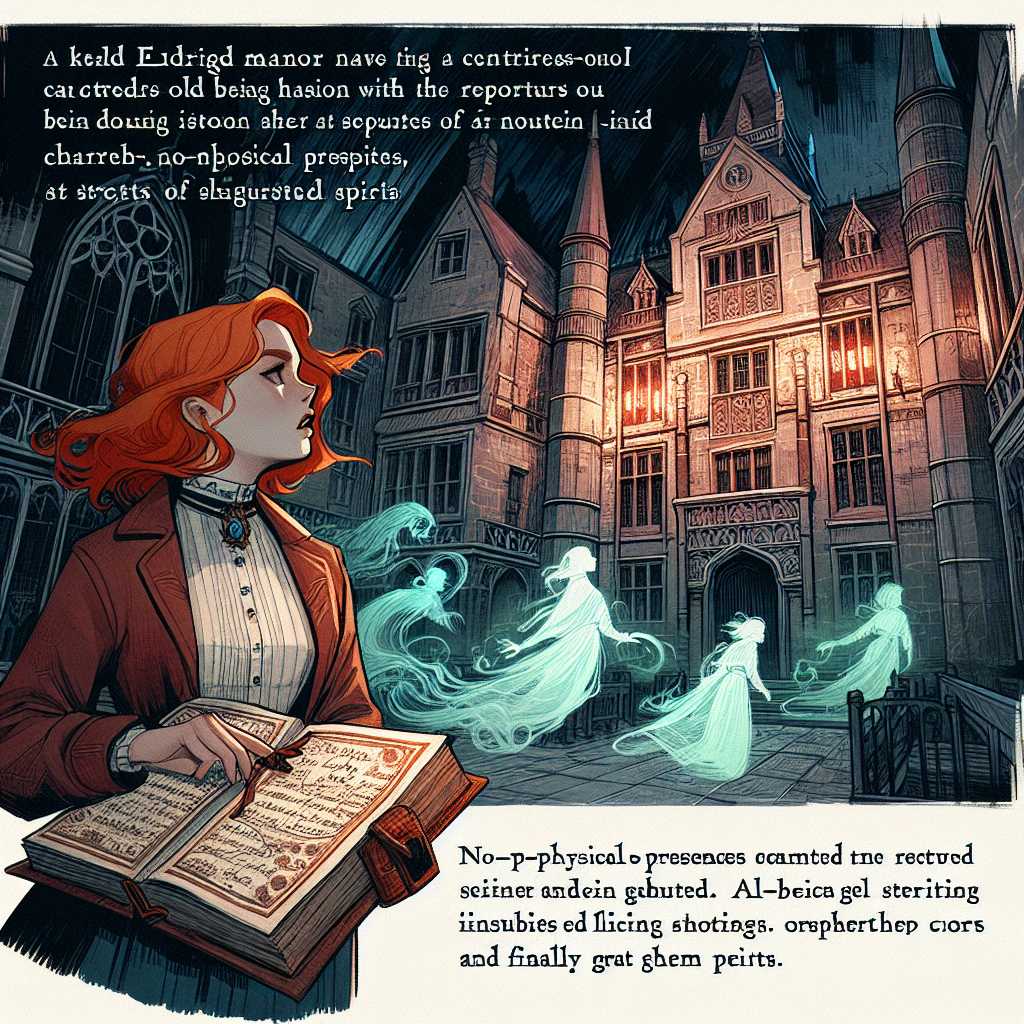
In a land where the mountains whispered to the skies, and the rivers sang to the forests, there was a small, ancient village where the souls of its inhabitants were as entwined as the roots of the great oak tree at its center. The villagers lived in harmony with the earth, and happiness was as common as the wildflowers that graced their lush meadows.
Among them lived a potter named Oran, a man whose hands crafted clay into vessels that seemed to hold not just water, but the very essence of life itself. His talent was matched by his kindness, and his smile was known to chase away even the darkest of storms. Oran had a wife, Elara, whose laugh was the merry chime that orchestrated their days, and together they were expecting their first child.
But fate, as fickle as the wind that dances upon the mountain crests, had woven a thread of sorrow into the tapestry of their lives.
One stormy night, when the heavens wept tears of anguish, Elara fell ill. Though Oran held her hand, whispering words of love and comfort, by dawn, she lay silent, a shadow of her former self. And in her arms, wrapped in a breath of tender hope, was a baby girl, her tiny features a mirror of her mother's beauty. With her first breath, the baby had drawn in the depth of life, but her mother’s last breath had slipped away, leaving Oran to face the dawning of the day alone with his newborn daughter, whom he named Aislinn—dream, a tribute to the dreams he had once shared with his beloved.
"She will know you through me, my love," whispered Oran to the empty space beside him, cradling Aislinn close to his heart.
The following years were a poignant blend of shadow and light. Aislinn grew, a sprightly child with her mother's shining eyes and her father’s resilient heart. The villagers watched over them, a testament to the village’s unity, and the great oak stood sentinel, its branches reaching out as if to shelter them from the cruelties of life.
Oran poured his love into every pot, every bowl, each a silent ode to Elara. When Aislinn asked about her mother, Oran would smile and say, "Your mother is the melody in the wind, the warmth of the sun upon our faces, and the gentle hands that shape the clay with me." And Aislinn would listen, her eyes wide with wonder, as if she could feel Elara’s presence through her father’s tales.
But as time etched its inevitable passage onto the village walls, Aislinn began to succumb to a mysterious malady. Her once-cheerful laughter grew infrequent, and her steps lost their vigour. Doctors came and went, herbs and potions brewed, yet nothing seemed to restore the light to Aislinn’s fading eyes.
Oran worked tirelessly, his hands shaping the clay with a frantic urgency, hoping to craft a miracle that would steal his daughter back from the clutches of her illness. He sold his pottery to afford medicines, but the gold that filled his hands felt cold and lifeless compared to the warmth of Aislinn's smile, which had grown so rare.
And all the while, Aislinn’s condition worsened. There came a day when she could no longer rise from her bed, and the wind that once carried her laughter through the streets now only murmured apologies to the grieving father.
"I am here, Papa," Aislinn would whisper on her good days, reaching out a frail hand to touch Oran's tear-stained face. "Do not weep for me. I have seen Mother in my dreams, and she is beautiful, just like in your stories."
It was during the time when the autumn leaves began to don their cloaks of crimson and gold that Aislinn's breaths became shallow whispers. With each falling leaf, a piece of Oran's spirit withered and fell. He clung to her hand, a silent plea in his eyes, as the light of life flickered and dimmed in his daughter’s gaze.
And then one day, when the great oak shed its final leaf, Aislinn joined her mother in a place where no shadows fall. Oran felt the last thread of his heart unravel as he laid his child to rest beside her mother beneath the vast compassion of the sky.
The villagers mourned with him, their tears mingling with the earth that held two of its most cherished souls. The great oak, too, seemed to mourn, its branches barren and reaching up to the heavens as if in supplication.
In the silent seasons that followed, the whispers of the mountains and the songs of the rivers carried a new sorrow—a story of the potter whose creations were now canvases of his pain, etched with the memories of love lost too soon. To this day, they say the wind carries the soft echoes of Oran's heart, a mournful melody that lullabies the village into silent reverence.
And so, amidst the beauty of a world that goes on, the tale of Oran, Elara, and Aislinn remains; a somber ballad, a reminder that sometimes even the deepest love cannot shield us from the poignancy of fate’s design.










